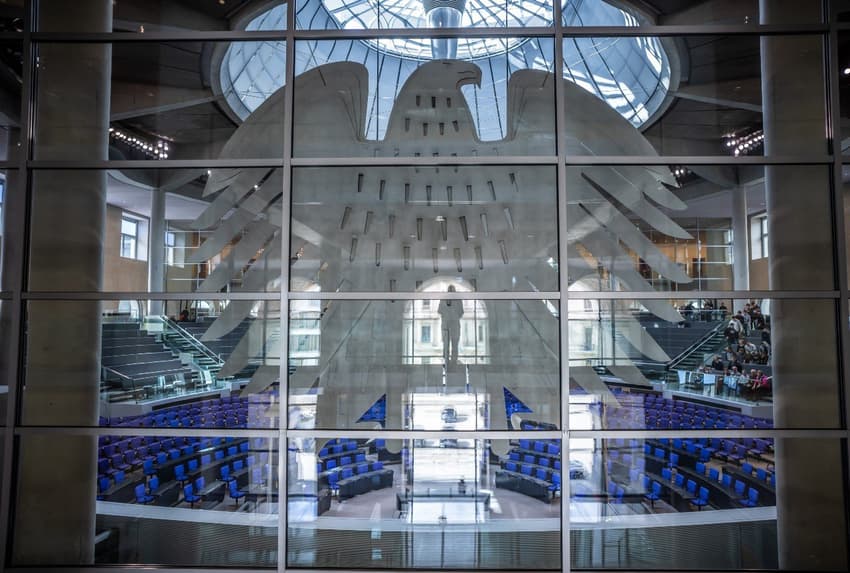German parliament votes to make itself smaller in disputed reform

The German parliament on Friday voted to cut the number of MPs sharply, in a reform blasted by the leader of Angela Merkel's conservative sister party as an "attack on democracy".
Under the reform, the number of seats in parliament would be slashed at the next elections to 630 from 736.
The plan, put forward by Chancellor Olaf Scholz's Social Democrats as well as coalition partners Greens and the liberal FDP, was adopted with 399 votes in favour, 261 against and 23 abstentions.
The German parliament has been expanding at each election because of a complex voting system which awards seats for direct mandates while also proportionally allocating seats according to the score of the parties.
In Germany, each person gets to cast a vote for a candidate directly, and another vote for a party.
READ ALSO: EXPLAINED: How Germany's complex electoral system works
A five-percent threshold has to be cleared for a party to send MPs to parliament.
That threshold can only be waived if a party wins three seats directly -- a clause that the reform has removed.
Smaller parties like the far-left Linke and former chancellor Merkel's Bavarian sister party CSU were up in arms, as both risk missing the five percent hurdle.
"This voting rights reform is an attack on our democracy," charged CSU party leader Markus Söder, adding that Scholz's coalition was therefore "distorting the will of voters".
Leader of Merkel's CDU, Friedrich Merz, also said his party would "not accept such damage to confidence in our democracy".
Like the conservatives, Linke parliamentary chief Jan Korte said his party will take the case to the constitutional court.
The reform was the "biggest attack" on voting rights "in decades," he charged.
According to the calculations of the federation of German taxpayers, the reform would help the state save €340 million per election cycle.
Comments
See Also
Under the reform, the number of seats in parliament would be slashed at the next elections to 630 from 736.
The plan, put forward by Chancellor Olaf Scholz's Social Democrats as well as coalition partners Greens and the liberal FDP, was adopted with 399 votes in favour, 261 against and 23 abstentions.
The German parliament has been expanding at each election because of a complex voting system which awards seats for direct mandates while also proportionally allocating seats according to the score of the parties.
In Germany, each person gets to cast a vote for a candidate directly, and another vote for a party.
READ ALSO: EXPLAINED: How Germany's complex electoral system works
A five-percent threshold has to be cleared for a party to send MPs to parliament.
That threshold can only be waived if a party wins three seats directly -- a clause that the reform has removed.
Smaller parties like the far-left Linke and former chancellor Merkel's Bavarian sister party CSU were up in arms, as both risk missing the five percent hurdle.
"This voting rights reform is an attack on our democracy," charged CSU party leader Markus Söder, adding that Scholz's coalition was therefore "distorting the will of voters".
Leader of Merkel's CDU, Friedrich Merz, also said his party would "not accept such damage to confidence in our democracy".
Like the conservatives, Linke parliamentary chief Jan Korte said his party will take the case to the constitutional court.
The reform was the "biggest attack" on voting rights "in decades," he charged.
According to the calculations of the federation of German taxpayers, the reform would help the state save €340 million per election cycle.
Join the conversation in our comments section below. Share your own views and experience and if you have a question or suggestion for our journalists then email us at [email protected].
Please keep comments civil, constructive and on topic – and make sure to read our terms of use before getting involved.
Please log in here to leave a comment.